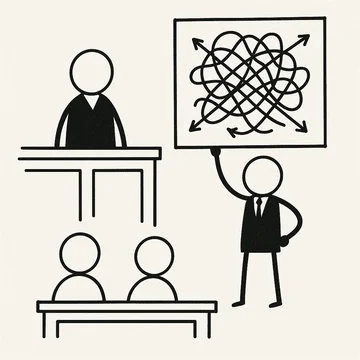
In an opinion today, visiting Judge Kennelly (N.D. Ill.) rejected the idea that an accused infringer could bring an IPR, receive a claim construction in that IPR, and then argue that that construction is "intrinsic evidence" that, by itself, merits adopting the construction in the district court case.
In XMTT, Inc. v. Intel Corp., C.A. No. 18-1810-MFK, D.I. 293 (D. Del. July 22, 2022), the PTAB had proposed and applied its own constructions for the claims, and accused infringer Intel ultimately lost the IPR. Intel then appealed, and the Federal Circuit affirmed without reaching the merits of the claim constructions.
While the IPR was pending, Intel argued that the District Court should not adopt the PTAB's constructions, presumably to strengthen its arguments before the PTAB.
But after those constructions were adopted by the PTAB and Intel lost the appeal, Intel reversed its position and argued that the District Court should adopt the PTAB's constructions—presumably because they result in non-infringement. Intel argued that the PTAB's constructions were now "intrinsic evidence."
Judge Kennelly rejected that idea. He noted a previous holding that such intrinsic evidence is only significant if it involves material presented by the inventor:
In contrast to XMTT's emphasis on the plain language, [accused ingringer] Intel singularly focuses on the prosecution history as the dispositive intrinsic evidence. But not all intrinsic evidence is created equal. The prosecution history is significant only to the extent that "any explanation, elaboration, or qualification presented by the inventor during patent examination . . . capture[s] the scope of the actual invention that is disclosed, described, and patented." AstraZeneca AB v. Mylan Pharms. Inc., 19 F.4th 1325, 1335 (Fed. Cir. 2021) (cleaned up); see also id. at 1336 (explaining that "even in the absence of a clear and unmistakable disavowal," relevant evidence can also include canceled claims).
XMTT, Inc. v. Intel Corp., C.A. No. 18-1810-MFK, D.I. 293 (D. Del. July 22, 2022) (emphasis added).
Further, he held that stare decisis did not bar the Court from deviating from the PTAB's construction, since the Court is simply not bound by that prior construction. Nor did the Court need to follow the PTAB's previous construction to avoid inconsistent constructions between invalidity and infringement, based on Federal Circuit precedent.
Finally, prevailing party XMTT's inability to appeal the PTAB's decision meant that collateral estoppel did not apply:
In short, "[i]t is axiomatic that a judgment is without preclusive effect against a party which lacks a right to appeal that judgment." Penda Corp. v. United States, 44 F.3d 967, 972–73 (Fed. Cir. 1994) . . . . The Third Circuit has recognized this "equitable exception" to issue preclusion, which applies "where '[t]he party against whom preclusion is sought could not, as a matter of law, have obtained review of the judgment in the initial action.'" Hesketh, 828 F.3d at 174 (quoting Restatement (Second) of Judgments § 28) (alteration in original). Because XMTT prevailed before the PTAB, it had no right to appeal to the Federal Circuit. This sort of procedural history is precisely why this equitable exception to issue preclusion exists. See Standefer v. United States, 447 U.S. 10, 23 n.18 (1980) (explaining that issue preclusion "is premised upon an underlying confidence that the result achieved in the initial litigation was substantially correct" and that without appellate review "such confidence is often unwarranted"). Put simply, the Court will not premise issue preclusion on the proposition that XMTT, as appellee, could have asserted claim construction arguments, especially when its judicial estoppel argument was (at least as seen by the Federal Circuit) pretty close to a slam dunk.
Ultimately, the Court declined to issue a supplemental claim construction order to adopt the PTAB constructions.
If you enjoyed this post, consider subscribing to receive free e-mail updates about new posts.






